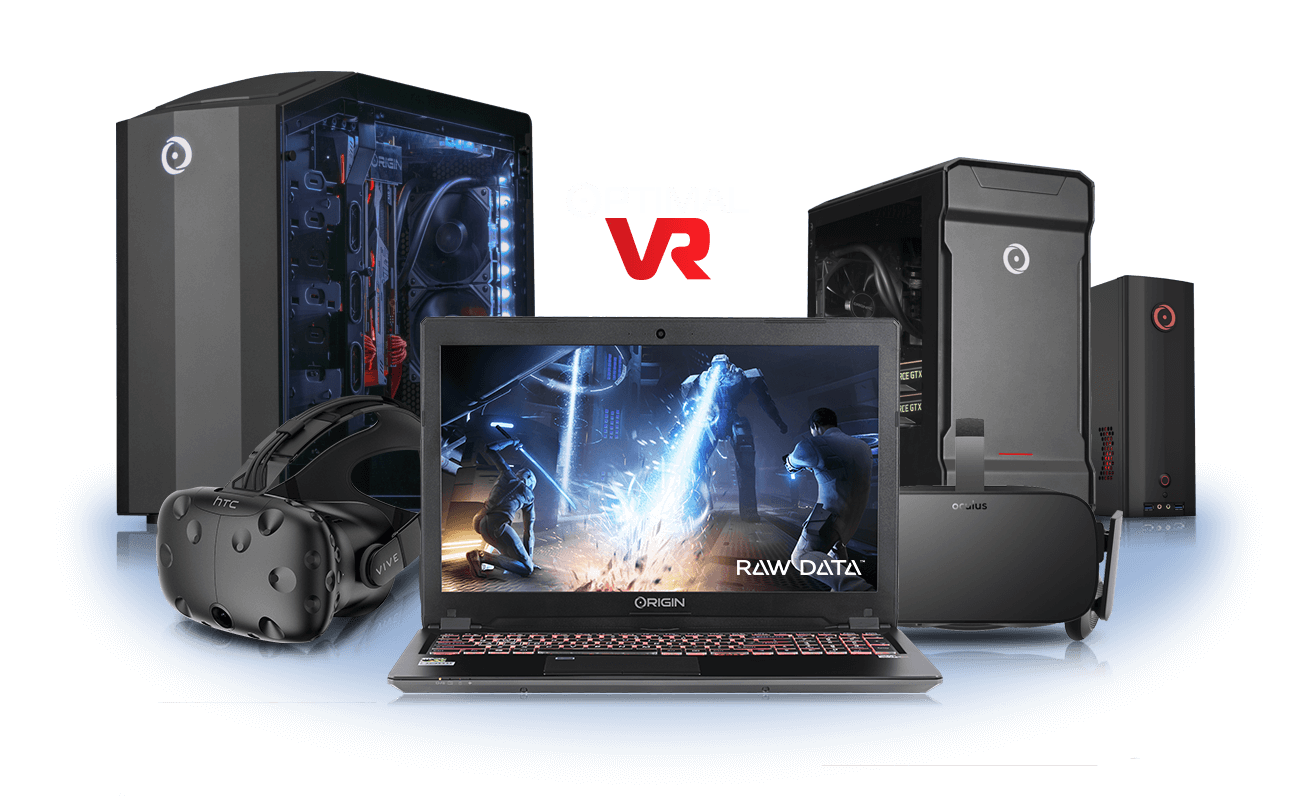Desktop Vs. Laptop For Virtual Reality Gaming

In the ever-evolving world of virtual reality gaming, the choice between using a desktop or a laptop can be a crucial decision. Both options offer unique benefits and drawbacks that can greatly impact the gaming experience. So, which one is the better choice for virtual reality gaming? Let’s delve into the world of desktops and laptops to explore their suitability for this immersive gaming experience.
Desktop Vs. Laptop: Choosing the Ultimate Platform for Immersive Virtual Reality Gaming
Desktop Vs. Laptop For Virtual Reality Gaming
When it comes to immersing yourself in the thrilling world of virtual reality gaming, choosing the right platform is crucial. Both desktop and laptop setups have their own advantages and limitations, making it essential to understand which one suits your needs best. Let’s dive into the pros and cons of each option, so you can make an informed decision.
Related: Buy Best Desktops in Oman
Desktop Gaming: Power Unleashed
- Unmatched Performance: Desktops offer superior processing power and graphical capabilities, allowing for a more immersive and visually stunning virtual reality experience.
- Easy Upgradability: With a desktop, you have the flexibility to easily upgrade components such as the graphics card, RAM, and storage, ensuring your system stays up-to-date with the latest VR advancements.
- Customizability: Desktops offer endless customization options, allowing you to build a VR gaming rig tailored to your specific preferences and requirements.
Related: Buy Best Laptops in Oman
Laptop Gaming: Portability in Play
- On-the-Go Gaming: Laptops provide the convenience of gaming anywhere, anytime, making them ideal for gamers who are frequently on the move or enjoy VR experiences in different locations.
- Compact Design: A laptop takes up minimal space and eliminates the need for additional peripherals, making it a great choice for those with limited room or a preference for a clutter-free gaming setup.
- Plug and Play: Unlike desktops, laptops offer the advantage of no assembly required. Simply plug in your VR headset, and you’re ready to dive into the virtual realms without any hassle.
Ultimately, the choice between a desktop and laptop for virtual reality gaming depends on your individual preferences, lifestyle, and budget. If you prioritize raw power and the ability to customize your gaming experience, a desktop might be the way to go. On the other hand, if portability and convenience are key factors for you, a laptop can provide an enjoyable VR gaming experience without compromising on performance. Consider your needs carefully, and let the virtual adventures begin!
Unveiling the Pros and Cons of Desktops and Laptops for Virtual Reality Gaming
Virtual reality gaming has taken the gaming industry by storm, immersing players in a whole new digital world. However, when it comes to choosing the right hardware for virtual reality gaming, the decision between a desktop and a laptop can be a daunting one. Both options have their own set of pros and cons that need to be carefully considered before making a final choice.
Desktops:
- Pros:
- Powerful Performance: Desktops generally offer more powerful processors and graphics cards, providing a smoother and more immersive virtual reality gaming experience.
- Upgradeability: Desktops can be easily upgraded with more powerful components, allowing gamers to keep up with the latest advancements in virtual reality technology.
- More Ports: Desktops usually come with a wider range of ports, making it easier to connect all the necessary peripherals for virtual reality gaming.
- Cons:
- Less Portability: Desktops are not designed to be portable, making it difficult to move them around or take them to different locations for virtual reality gaming.
- Space Requirements: Desktops require a dedicated space, often in the form of a desk or a designated gaming area, which may not be feasible for everyone.
- Higher Cost: Desktops tend to be more expensive than laptops, especially when considering the additional cost of peripherals and accessories required for virtual reality gaming.
Laptops:
- Pros:
- Portability: Laptops are designed to be portable, allowing gamers to enjoy virtual reality gaming on the go or in different locations.
- Space Saving: Laptops take up less space compared to desktops, making them a more suitable option for gamers with limited space.
- Lower Cost: Laptops generally have a lower upfront cost compared to desktops, making them a more budget-friendly option for those getting into virtual reality gaming.
- Cons:
- Less Powerful Performance: Laptops usually have less powerful processors and graphics cards compared to desktops, which can result in a slightly less immersive virtual reality gaming experience.
- Limited Upgradeability: Laptops are not as easily upgradeable as desktops, meaning gamers may need to invest in a new laptop when they want to keep up with the latest advancements in virtual reality technology.
- Less Ports: Laptops typically have fewer ports, which can make it more challenging to connect all the necessary peripherals for virtual reality gaming.
Ultimately, the choice between a desktop and a laptop for virtual reality gaming depends on individual preferences, budget, and specific gaming needs. Whether it’s the power and flexibility of a desktop or the portability and space-saving benefits of a laptop, both options can provide an enjoyable virtual reality gaming experience.
A Comprehensive Guide to Optimize Your Virtual Reality Gaming Experience
Virtual reality gaming has taken the world by storm, providing an immersive and exhilarating experience like never before. But when it comes to choosing the right hardware for your virtual reality adventures, the debate between desktop and laptop gaming is a hot topic. Each option has its own set of pros and cons, and understanding these differences can help you optimize your virtual reality gaming experience.
Desktop Gaming:
- Powerhouse Performance: Desktop computers are known for their superior processing power and performance capabilities. This means you can enjoy virtual reality games at their highest settings, with smooth frame rates and stunning visuals.
- Upgradeability: One of the biggest advantages of desktop gaming is the ability to upgrade your hardware. Whether it’s adding more RAM or upgrading your graphics card, desktops offer flexibility and future-proofing that laptops simply can’t match.
- Cost-Effective: While desktop gaming may require a larger upfront investment, it can be more cost-effective in the long run. Upgrading individual components is often more affordable than purchasing an entirely new laptop every few years.
Laptop Gaming:
- Portability: The biggest advantage of laptop gaming is its portability. With a powerful gaming laptop, you can take your virtual reality experiences on the go, whether it’s to a friend’s house or on a trip.
- Space-Saving: Laptops take up significantly less space than desktops, making them ideal for those with limited room or who prefer a clutter-free gaming setup.
- All-in-One Solution: Unlike desktops, gaming laptops offer an all-in-one solution. There’s no need to purchase additional peripherals or worry about compatibility issues. Simply plug in your virtual reality headset, and you’re ready to dive into the virtual world.
In conclusion, when it comes to choosing between desktop and laptop gaming for virtual reality, it ultimately depends on your personal preferences and needs. If you value raw power and customization, a desktop may be the way to go. On the other hand, if portability and convenience are important to you, a gaming laptop can provide a fantastic virtual reality gaming experience. Consider your budget, space constraints, and desired level of performance before making your decision.
Making the Right Decision: Recommendations for Selecting the Ideal Setup for Virtual Reality Gaming
When it comes to selecting the ideal setup for virtual reality gaming, the choice between a desktop and a laptop can be a tough one. Both options have their advantages and disadvantages, and it ultimately depends on your specific needs and preferences. To help you make the right decision, here are some recommendations to consider:
Performance: Desktop computers generally offer more power and better performance compared to laptops. They are equipped with high-end processors, larger memory capacity, and dedicated graphics cards, which are essential for a smooth and immersive virtual reality gaming experience. On the other hand, laptops are more compact and portable, making them a convenient choice for gamers who are always on the go.
Upgradability: One of the significant advantages of desktops is their upgradability. You can easily swap out components such as the graphics card, processor, and memory to keep up with the latest advancements in virtual reality technology. Laptops, on the other hand, have limited upgradability options. While some components like RAM and storage can be upgraded, others, like the graphics card, are often integrated into the motherboard, making them difficult or impossible to replace.
| Desktop | Laptop |
|---|---|
| More powerful | Portable |
| High upgradability | Limited upgradability |
| Multiple monitor support | Single display |
| More affordable | Expensive |
Multiple Monitor Support: If you’re a gamer who loves to have a multi-monitor setup, then a desktop is the way to go. Desktop computers typically have multiple display outputs, allowing you to connect and use multiple monitors simultaneously. On the other hand, laptops usually have a single display, limiting your options for expanding your gaming setup.
Affordability: In terms of cost, desktop computers tend to be more affordable compared to laptops with similar specifications. This is because laptops require compact and specialized components, which often come at a higher price. If budget is a significant concern for you, then a desktop setup might be a more cost-effective choice.
To Wrap It Up
In conclusion, the choice between a desktop and a laptop for virtual reality gaming ultimately comes down to personal preference and individual needs. Each option has its own advantages and disadvantages, and it’s important to weigh these carefully before making a decision. Whether you prefer the power and customization of a desktop or the portability and convenience of a laptop, both can provide an immersive virtual reality gaming experience. Ultimately, the most important thing is to choose the option that best suits your gaming style and preferences. So, whether you’re team desktop or team laptop, the world of virtual reality gaming is at your fingertips. Happy gaming!



